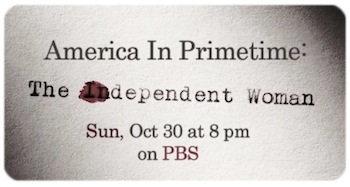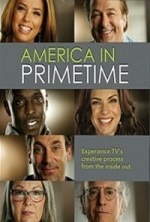In Thanks: To The Documentary Group for America In Primetime
 I think I’ve seen just about every documentary on television about television. Each has to be scanned as a potential teaching tool, yet few offer much insight or do more than collect clips and then gush effusively. But the four part look at US television organized as America in Primetime aired in the last month on PBS has been extraordinary, offered me new ideas, and left me reminded of the possibilities of the medium and with renewed thanks that I earn a living studying it.
I think I’ve seen just about every documentary on television about television. Each has to be scanned as a potential teaching tool, yet few offer much insight or do more than collect clips and then gush effusively. But the four part look at US television organized as America in Primetime aired in the last month on PBS has been extraordinary, offered me new ideas, and left me reminded of the possibilities of the medium and with renewed thanks that I earn a living studying it.
First, it is one of the smartest treatments of television aimed at a general audience I’ve encountered. Filled with interviews with creators, writers, actors, and an occasional executive, the episodes are filled with smart people saying really smart things about television artistry and storytelling. I was consistently amazed that most anyone I would have thought to include was there; the examples aren’t the most popular or obviously critically acclaimed, but apt. And it doesn’t hurt that it is beautifully shot and edited to examine each topic with a seamless and compelling narrative.
 The hours are filled with countless quotable gems from those who have written some of the best hours of television in the last thirty years. Authors talking about craft, characters, and the medium in profound and yet understated ways set amidst some of the best moments of medium’s finest shows. I was initially impressed by an episode looking at women (“Independent Woman”) that defied all the usual simplistic traps of a linear narrative of women’s progress, but instead reveled in the complexity and contradictions of women’s lives and representations instead of idealizing some sort of “positive” representation. The episodes are somewhat structured chronologically. The recent past is privileged, but the past is not forgotten nor the present recounted without context. If anything, narratively complicated series or those with ambiguous heroes are emphasized, but I’d have it no other way. The four episodes—Independent Woman, Man of the House, The Misfit, and The Crusader—are able to incorporate a lot, but a key absence was the lack of attention to the whiteness of the object of study.
The hours are filled with countless quotable gems from those who have written some of the best hours of television in the last thirty years. Authors talking about craft, characters, and the medium in profound and yet understated ways set amidst some of the best moments of medium’s finest shows. I was initially impressed by an episode looking at women (“Independent Woman”) that defied all the usual simplistic traps of a linear narrative of women’s progress, but instead reveled in the complexity and contradictions of women’s lives and representations instead of idealizing some sort of “positive” representation. The episodes are somewhat structured chronologically. The recent past is privileged, but the past is not forgotten nor the present recounted without context. If anything, narratively complicated series or those with ambiguous heroes are emphasized, but I’d have it no other way. The four episodes—Independent Woman, Man of the House, The Misfit, and The Crusader—are able to incorporate a lot, but a key absence was the lack of attention to the whiteness of the object of study.
My favorite documentary about television before the last month, Trio’s Brilliant but Cancelled from the early 2000s, includes CBS’s Mike Dann saying something to the effect of “everyone knows the smarter you are the less TV you watch.”[i] While I love the case studies and the industrial lessons they offer, I wince every time I hear that line when I screen it. No such poppycock here. America in Primetime avoids the swooning love for television more commonly the downfall of these documentaries and talks intelligently about television and storytelling in a way that defies any sense that television has been considered a “boob tube” or that choosing to tell stories in this medium needs to be apologized for. The last episode closes with this insight from David Milch: “Storytelling is like making everyone part of a big family so that members of the audience are able to identify with characters in their full complexity…that type of deep emotional attachment is what television at its best is capable of generating;” and it is when it does this that I love it most.
So thanks to Tom Yellen and The Documentary Group and to those whose work is explored in America in Primetime. Great storytelling about great storytelling.
[i] Maybe second favorite, Color Adjustment is unparalleled, but not part of material I often teach.


